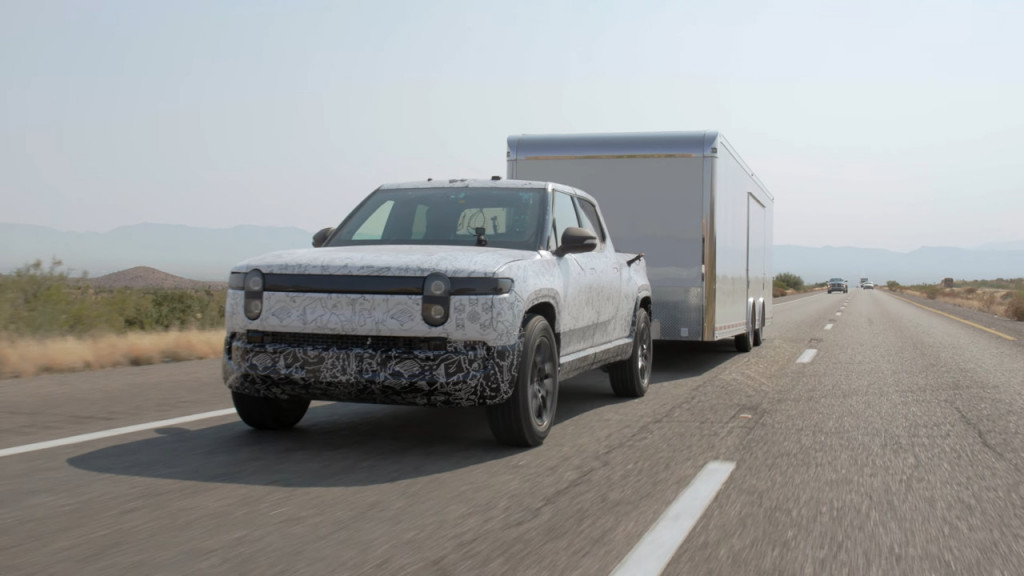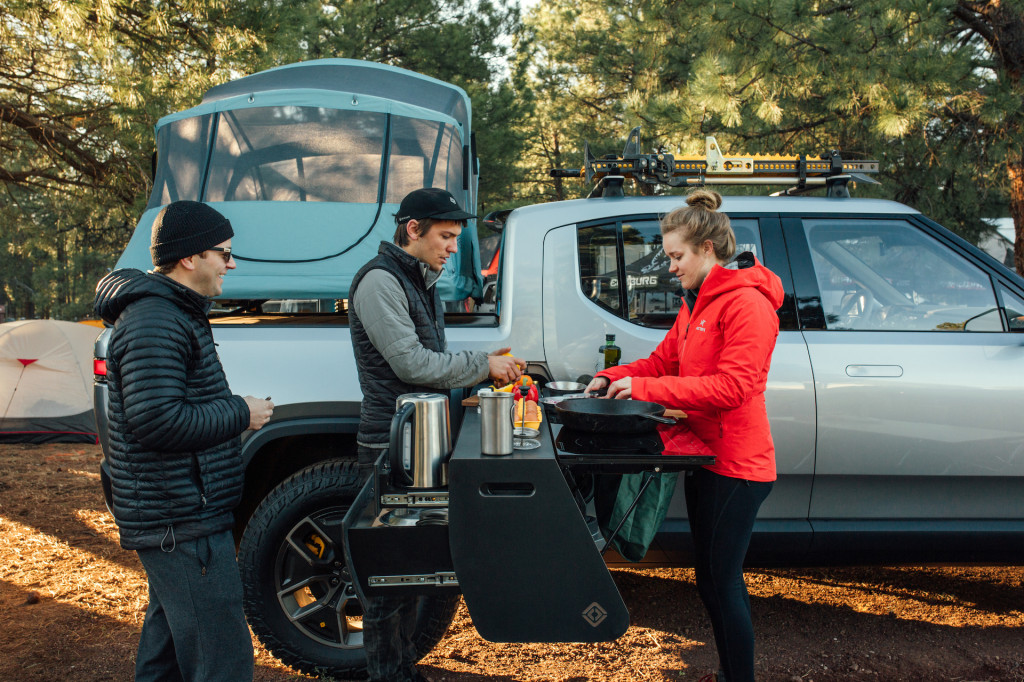The Davis Dam Grade, located along a stretch of State Route 68 between Las Vegas and the Hoover Dam, ascends from 550 feet elevation to 3,500 feet in just 11.4 miles.
It’s a demanding climb in any vehicle; but it’s more than that. The Davis Dam Grade test is the basis for an actual Society of Automotive Engineers (SAE) test establishing vehicle tow ratings.
The Rivian R1T electric pickup truck, the company claims in a video released Friday, can tow a 30-foot trailer loaded to 11,000 pounds over the grade. Although the test stipulates 100 degrees Fahrenheit and a minimum speed of 40 mph, the R1T did it with ambient temperatures ranging up to 118 degrees, and well above the speed threshold.
With deliveries delayed to summer 2021, the R1T is in the testing and validation stage, using pre-production vehicles now being made at its Normal, Illinois, factory to be representative of production in key areas like lighting, cooling, and aerodynamics, so that its systems can be checked.
Rivian’s engineering team also took the R1T and trailer up Towne Pass, gaining nearly 5,000 feet over 16.8 miles and a grade of up to 9.6%. And it tested, at least to some level, how the R1T can pull a trailer in the sand at nearby Dumont Dunes.

Rivian R1T - hot-weather towing test
In the company blog post accompanying the video of the R1T tackling these tasks and harsh environments (watch it at the bottom), a vehicle line manager notes that they generally see range cut in half when towing at full capacity. That closely mirrors what Tesla drivers have observed.
It’s also close to what Audi reported last year when it used a 2019 Audi E-Tron SUV to tow one of the only remaining examples of the GM EV1 from Tulsa to Austin. Right up near the E-Tron’s 4,000-pound tow rating, the E-Tron averaged 1.3 miles per kwh at an average 60 mph, or a top end of around 110 miles a charge.
The R1T has battery packs ranging up to 180 kwh—the largest size a must when towing. But even with that, range is expected to be in the vicinity of 400 miles unladen. That could push the maximum tow range down below 200 miles, when you figure in some wiggle room for finding a charging stop—and possibly doing some challenging maneuvering to get in position.

Rivian R1T Overlanding concept
Rivian could have some tricks up its sleeve, though. In addition to the additional DC fast charging stations the brand is expected to build near popular adventure locations—and hints of a whole lineup of lifestyle accessories for its trucks—it revealed in 2019 that its trucks will have the capability to accept accessory range-expanding battery packs that would fit in the bed or below a false bed floor.
The company has targeted a combination of range and capability—including water fording and off-roading—that no electric vehicle maker has yet achieved. Would 200 miles of range and more frequent fast-charging stops be acceptable for the few times you tow a large trailer? We’d appreciate your thoughts on whether Rivian is setting the bar too high, too low, or just right for compelling a new crowd to go electric.













